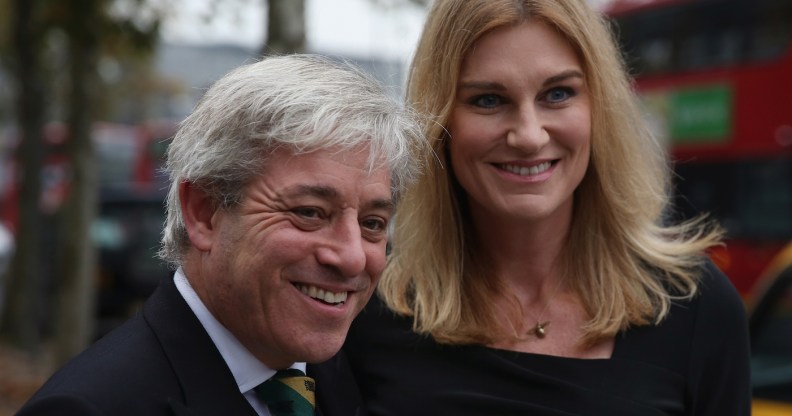House of Commons set to get gender-neutral toilets

The House of Commons could soon have gender neutral toilets.
The new toilets are one of several proposed changes by Speaker John Bercow.
Called “gender-sensitive”, the bathroom facilities would be aimed at being more inclusive for transgender people.
In addition, female MPs would be allowed to breastfeed their babies during Commons debates.
Mr Bercow has brought in an expert to rule out “gender insensitivities”, reports the Sunday Times.
As well as being more trans inclusive, the changes would also include introducing maternity and paternity leave for MPs.
Voting could also see a change, with the possibility of “remote or electronic voting”, as well as the appointment of committees, potentially setting gender quotas.
Even the artwork in the Commons could see a change, as it could aim to include more women.
The changes aiming for a “gender-sensitive parliament” were set out in a paper, reports the Sunday Times.
The paper says that the Commons is a “masculinised institution”, noting its “exclusionary language”, and the fact that there are fewer toilets for women than men.
It will examine whether the possibility of later voting puts off mothers will young children from becoming MPs, questioning whether Parliamentary recess should coincide with school holidays.
Sarah Childs, the professor of gender and politics and the University of Bristol, will lead an investigation.
She is to “address issues of women’s inequality at Westminster, develop a series of reforms that address existing gender insensitivities and instigate a process of reform”.
Childs said: “In developing a set of gender sensitive reforms, I will be examining what might need to change . . . This means addressing family-unfriendly rules . . . and behaviour that marginalises women and identifying the means by which women and men are able to participate equally throughout the institution.”
These are not the first of recent changes to be made by Mr Bercow. MPs being sworn into the House of Commons earlier this year, for the first time, were given the option of a gender neutral title.

